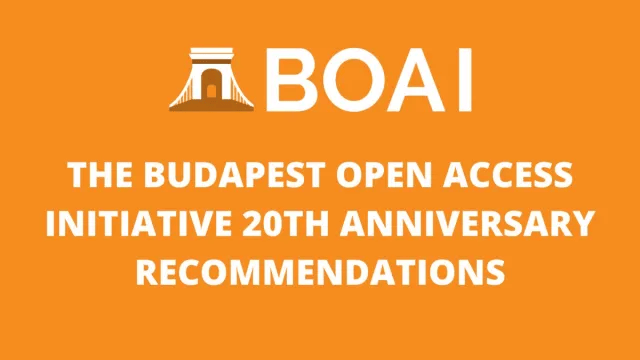Listening within structural barriers and relational potential in public health communication
DOI:
https://doi.org/10.5281/zenodo.15905774Keywords:
organizational communication, public health, internal communication, structural barries, institucional cultureAbstract
Internal communication in public health institutions is a key operational axis and an essential space for the production and circulation of organizational knowledge. This study, from a critical organizational perspective, diagnosed the internal communication dynamics within a Cuban healthcare institution, identifying strengths, weaknesses, and opportunities for structural improvement. Using a qualitative, non-experimental, and descriptive design, participant observation, semi-structured interviews, and document analysis were conducted, with thematic coding performed using Atlas.ti. A hierarchical structure was observed, characterized by limited feedback, strong reliance on informal channels, and a lack of strategic planning in communication management. These conditions hinder transparency, demotivate staff, and limit the institution’s responsiveness. However, spontaneous collaborative practices and a willingness for interpersonal dialogue were also notes, representing valuable resources for bottom-up institutional transformation. It is necessary to professionalize internal communication, institutionalize protocols, and democratize information flows. Communication should be addressed as a transversal component of public management, constitutive of both power and organizational knowledge. The study provides conceptual and practical tools for rethinking the relationship between communication, institutional authority, and organizational epistemologies in the field of public health.
Downloads
References
Bąk, D., & Bąk, S. (2024). Change management in health care – a scoping literature review. e-mentor, 2(104), 23–33. https://doi.org/10.15219/em104.1652
Bartoli, C. (2020). La comunicación interna en las organizaciones 2.0: Prácticas informales y desafíos estratégicos. Editorial UOC. https://www.editorialuoc.com/la-comunicacion-interna-en-las-organizaciones-20_1
Braun, V., & Clarke, V. (2021). Thematic analysis: A practical guide. SAGE Publications. https://uk.sagepub.com/en-gb/eur/thematic-analysis/book248481
Contreras, J., & Pinto, R. (2022). Participación, comunica ción y salud en contextos de precariedad institucional. Salud Colectiva, 18, e4102. https://doi.org/10.18294/sc.2022.4102
Creswell, J. W., & Poth, C. N. (2018). Qualitative inquiry and research design: Choosing among five approaches (4th ed.). SAGE Publications. https://collegepublishing.sagepub.com/products/qualitative-inquiry-and-research-design-4-246896
Dollard, M. F., & Bailey, T. S. (2021). Building a Psycho social Safety Climate in Turbulent Times: The Case of COVID-19. Journal of Applied Psychology, 106(4), 508–520. https://doi.org/10.1037/apl0000883
Edmondson, A. C., & Lei, Z. (2021, April). What psychological safety looks like in a hybrid workplace. Harvard Business Review. https://hbr.org/2021/04/what-psychological-safety-looks-like-in-a-hybrid-workplace
Fahmi, L. (2024). Internal communication and well-being: Organizational challenge. Unpublished manuscript. https://www.researchgate.net/publication/381145057_Internal_Communication_and_Well_being_Organizational_Challenge
Flick, U. (2022). An introduction to qualitative research (7ª ed.). SAGE Publications. https://uk.sagepub.com/en-gb/eur/an-introduction-to-qualitative-research/book278983
Fox, A., Law, J. R., & Baker, K. (2022). The case for me tagovernance: The promises and pitfalls of multisectoral nutrition service delivery structures in low- and middle-income countries. Public Administration and Development, 42(2), 128–141. https://doi.org/10.1002/pad.1974
Fronzetti, A., Grippa, F., Broccatelli, C., Mauren, C., McKinsey, S., Kattan, J., Sutton, E. S. J., Satlin, L., & Bucuvalas, J. (2023). Boosting advice and knowledge sharing among healthcare professionals. arXiv. https://arxiv.org/abs/2310.15102
Lee, Y., & Yue, C. A. (2023). The state of internal communication in Latin America: An international Delphi study. Public Relations Review. Advance online publication. https://doi.org/10.1016/j.pubrev.2022.102262
Louart, S., Bonnet, E., & Ridde, V. (2021). Is patient navigation a solution to the problem of “leaving no one behind”? A scoping review of evidence from low-income countries. Health Policy and Planning, 36(1), 101–116. https://doi.org/10.1093/heapol/czaa093
Pattiasina, P. J., Aziz, F. R., & Kowiyanto. (2024). The role of internal communication in building a positive corporate J. Law Epistemic Stud. (July - December 2025) 3(2): 1-6 6 culture. International Journal of Social and Education (INJOSEDU), 1(3), 595–607. https://www.researchgate.net/publication/382240925_THE_ROLE_OF_INTERNAL_COMMUNICATION_IN_BUILDING_A_POSITIVE_CORPORTE_CULTURE
Touraine, A. (2020). El sujeto y el poder: Nuevas dinámicas sociales en tiempos de incertidumbre. Siglo XXI Editores. https://sigloxxieditores.com.mx/autor-a/alain-touraine/
Whetsell, T. A., Kroll, A., & DeHart Davis, L. (2020). For mal hierarchies and informal networks: How organizational structure shapes information search in local government. arXiv. https://arxiv.org/abs/2006.08019
Zuzul, T., Cox Pahnke, E., Larson, J., Bourke, P., Caurvi na, N., Parikh Shah, N., Amini, F., Weston, J., Park, Y., Vogelstein, J., White, C., & Priebe, C. E. (2021). Dynamic silos: Increased modularity in intra-organizational communication networks during the Covid-19 pandemic. arXiv. https://arxiv.org/abs/2104.00641
Published
Data Availability Statement
The datasets used and/or analyzed during the current study are available from the corresponding author on reasonable request.
Issue
Section
License
Copyright (c) 2025 Yanara Aróstica (Author)

This work is licensed under a Creative Commons Attribution-NonCommercial-ShareAlike 4.0 International License.
































